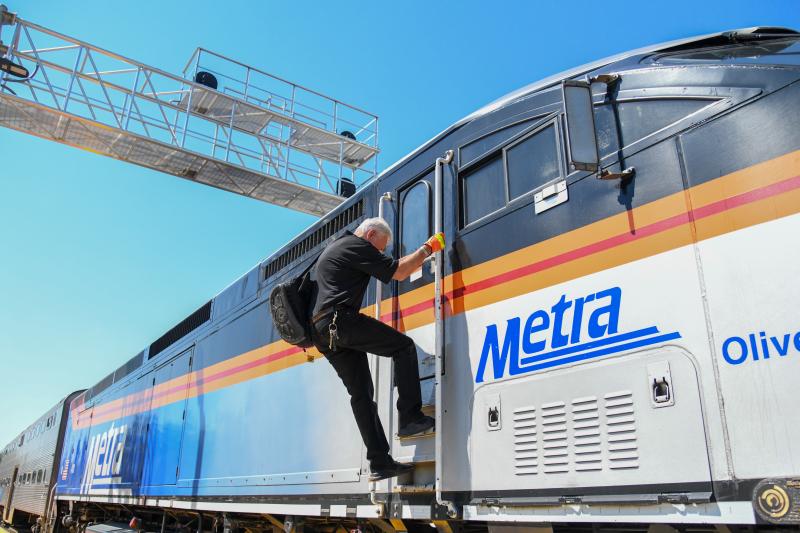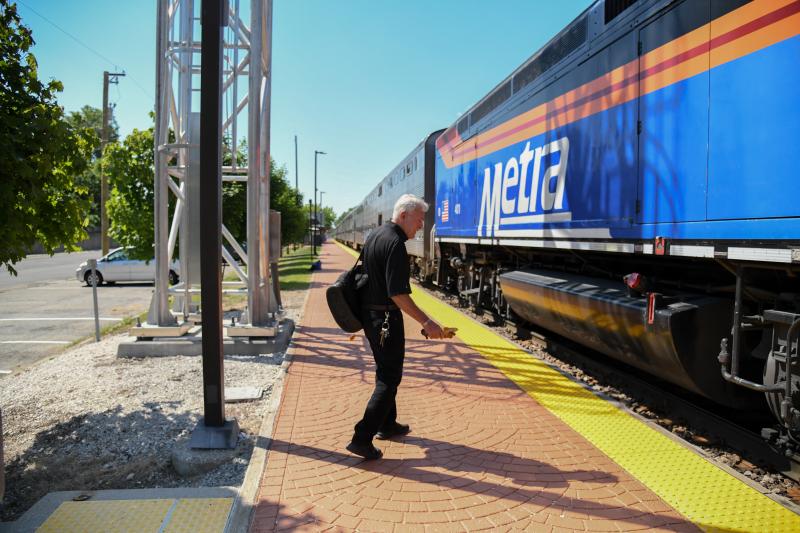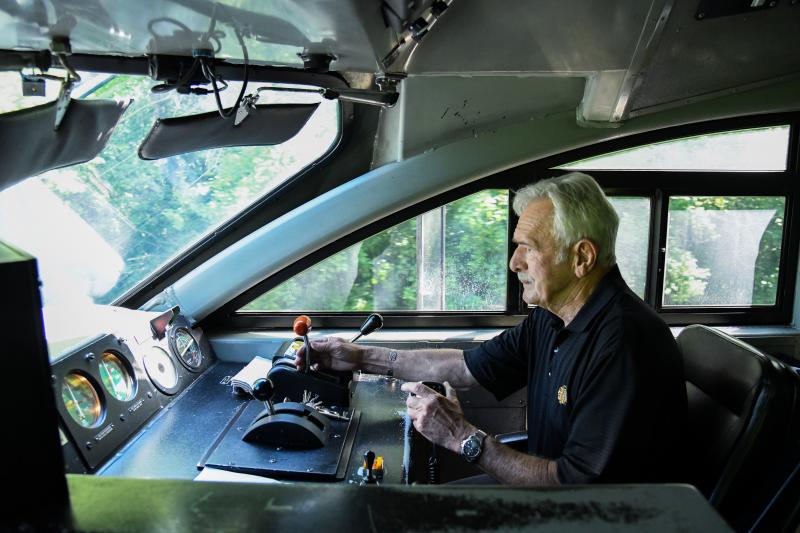
In 1968 when he was 17, John Appel cared more about dating than he did about trains. But two weeks after graduating high school, these unrelated interests became curiously entangled.
“I had never been on a train before in my life,” Appel said. “A girl I was dating, her father was an engineer and he said, ‘If you’re gonna date my daughter, you gotta get a job.’ So that’s how I started.”
And he never stopped. On Monday, June 29, Appel retired after 52 years of service. The Metra engineer began his railroad career on July 5, 1968 as a fireman with the Chicago, Milwaukee, St. Paul & Pacific Railroad – better known as the Milwaukee Road. His retirement marks the end of an era not only for him, but for his craft. Appel is the last engineer to have joined the ranks when Metra acquired the Milwaukee Road’s commuter lines in 1987, and possibly the last Milwaukee Road engineer working in the country.
“Went by in a hurry, believe it or not, as long as it’s been,” Appel said on one of his recent inbound runs from Fox Lake. “Went by in a hurry. It’s unbelievable how fast life goes by, so enjoy it, which I do.”
He spent the first 41 years of his career on the Fox Lake subdivision – the predecessor of today’s Milwaukee District North Line – 10 ½ on the North Central Service and will now end his career on the Fox Lake sub where it all started. Ask Appel if he’s considered the significance of his retirement to the railroad and he’ll take the humble route.
“There’s nothing special about me,” Appel contended. “I’m just another guy retiring.”
But if you ask his colleagues, Appel’s retirement is an immeasurable loss for the railroad. He’s trained generations of engineers and conductors, and worked with care, respect, knowledge, and candor that’s unrivaled.
“John raised us,” said Metra conductor Ryan Dempsey, who’s worked with Appel for 20 years. “I was just a kid when I started. He picked on us a lot over the years, but he taught us it’s serious out there and to never be complacent. We’re running million-dollar equipment with thousands of lives. I’m ecstatic for him, but he’s going to be truly missed.” 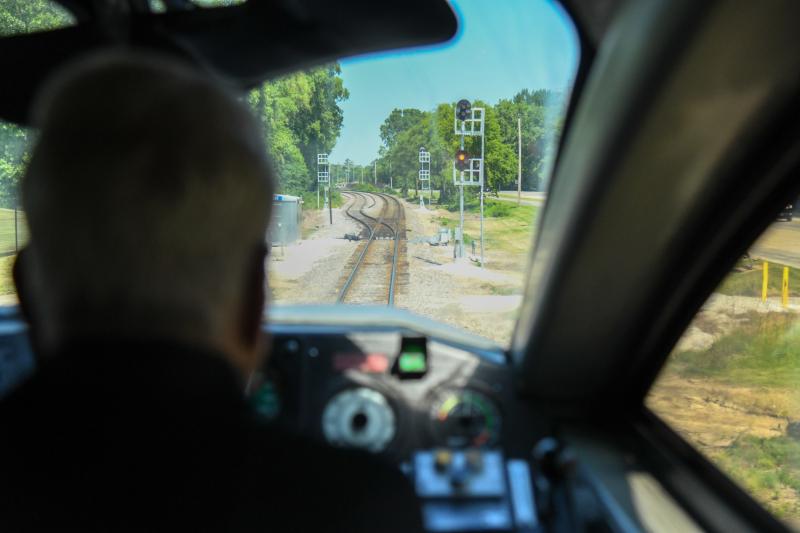
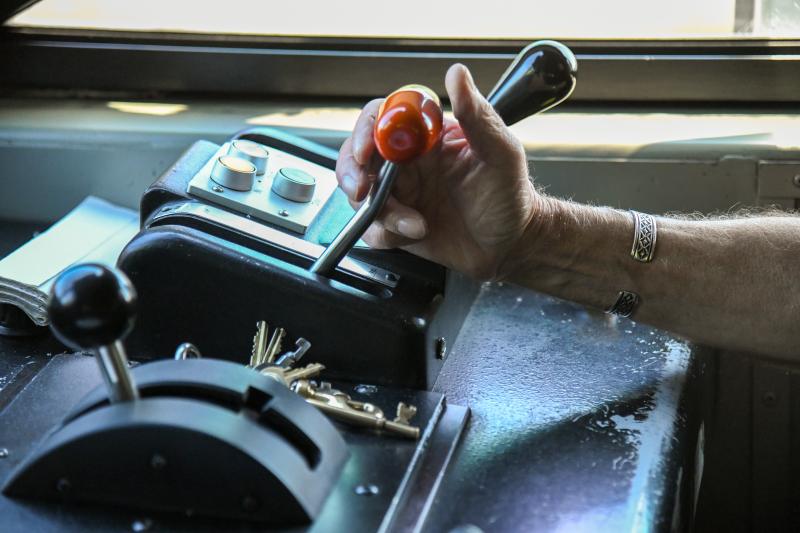
THE BEGINNING
For the first five years of his career, Appel was a fireman on the Milwaukee Road’s freight trains running on the Fox Lake subdivision. In the steam engine days, a fireman was responsible for stoking the fire to maintain steam pressure in the boiler. By the time John arrived, the Milwaukee Road had been dieselized, meaning he was responsible for assisting the engineer, gaining real life experience for when he took the engineer’s seat himself.
“I was on the engine every day,” Appel said. “I picked out the parts I thought were good and the parts I said ‘I’ll never do it that way.’”
He worked with men who had run steam engines, and some who had served in World War II. They were the kind of guys who had never heard of kid gloves and wouldn’t mince words if they thought you’d done something wrong. They were also the kind to play jokes.
Appel remembered on one of his first trips as they approached a curve, the engineer told him to run back and turn a big steel wheel slightly to the right.
“And I did,” Appel laughed, shaking his head.
In some ways, it’s a different railroad than it was 52 years ago. Not only does his first job, fireman, no longer exist, but signal systems and rules have changed, cab cars now have radios, customers and pedestrians have distracting cell phones, and Positive Train Control (PTC) now dictates how railroads operate.
“And there’s the loss of hair color,” Appel said, white hair bouncing with the cadence of the rails.
Those early days were the best because everything was new. (“I can’t learn anymore. The gum ball machine is broke,” he joked.) He hostled freight in Milwaukee, worked on the turbo trains, and remembers early morning jaunts to the lakefront in Madison after chugging there through the night.
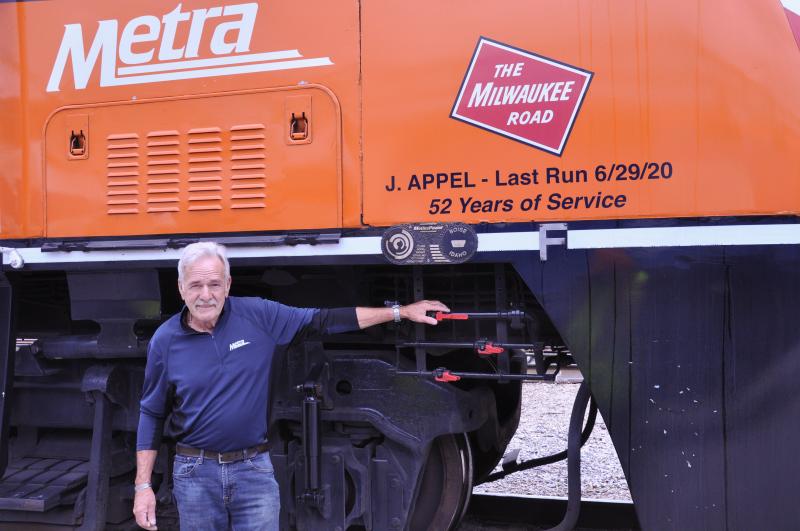
Engineer John Appel poses next to locomotive 405, the Milwaukee Road heritage unit, which was adorned to honor his retirement. (Photo by Mark Llanuza)
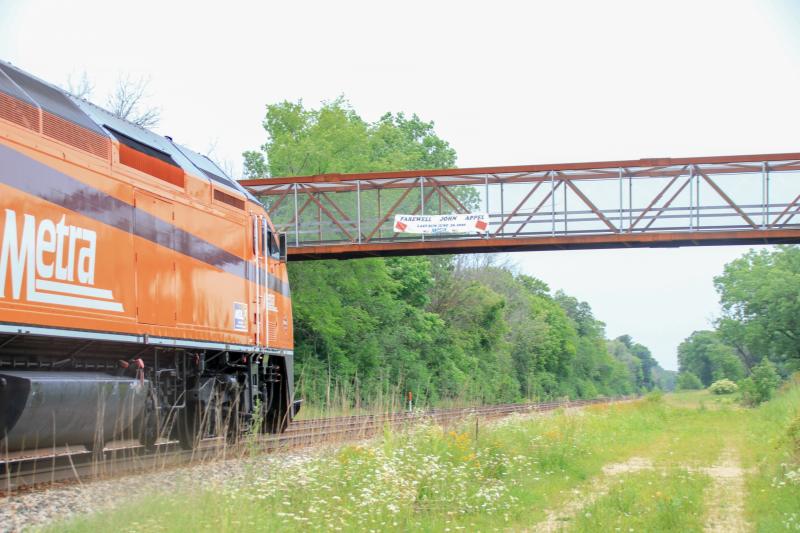
John Appel's last train runs beneath a Metra banner wishing him farewell on Monday, June 29. (Photo by Tim Pitzen)
BECOMING AN ENGINEER
Appel was promoted to engineer on Dec. 12, 1973. He eventually made the switch from freight to passenger operations, a move that gave him more stability. However, stability is a relative term in the railroad. Like many engineers, he missed milestones as his five sons were growing up.
“He’s been through all of it: working the midnight job, working Christmas and Thanksgiving. Your wife is having a baby and you can’t be there,” said his wife of 40 years, Chrissy Appel. “So, when he trains these new engineers, he totally understands how hard it is.”
He was able to coach little league for a few seasons, and Chrissy understood the life, having a father and grandfather who both worked out of town when she was growing up.
“We’d celebrate when he got home,” Chrissy said. “You make it work.”
As he rose through the roster – he’s now the number one – he became involved in the union representing engineers, now known as the Brotherhood of Locomotive Engineers and Trainmen. He served at various points as president and local chairman and vice chairman.
Metra conductor Don Kiesgen Jr. credits Appel for teaching him about the comradery and teamwork that goes into being a conductor, but also a union member.
“It’s one thing reading a rule book, and it’s another when you’re out there,” Kiesgen said. “John breaks it down so much easier. He’s very knowledgeable and he’s a true brother. He taught us it’s what’s best for everybody. It’s not me, it’s us.”
John also trained new engineers throughout his career. He earned a reputation among engineers and conductors alike for being direct.
“He’s fair. He’ll give it to you straight,” Kiesgen said. “He is who he is. You either like him or you don’t, and he doesn’t care either way.”
Appel sees himself and his fellow engineers as a small part of what it takes to run the railroad, telling his trainees to leave their egos at the door and focus on the task at hand.
“The hours we work, the concentration, the sound, some of the tragic things we go through, it wears on you,” Appel said. “The key is to concentrate on what you’re doing when you’re doing it. That’s something you have to work at.”
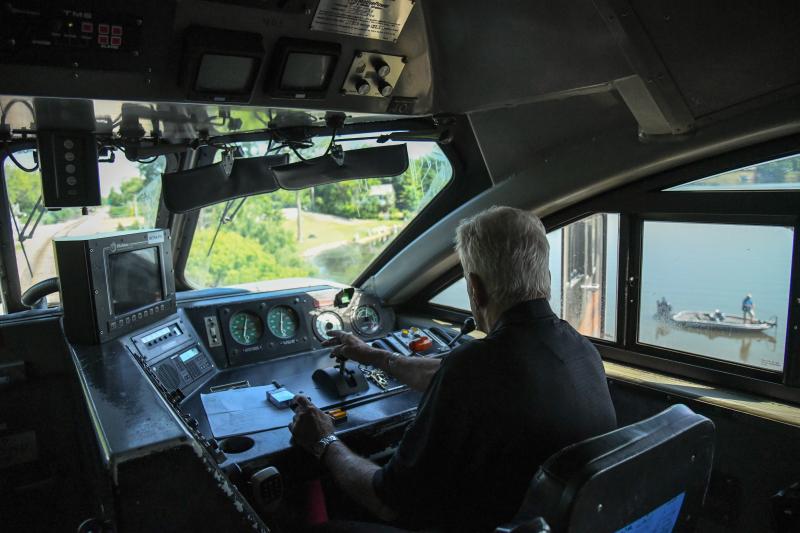
“I’VE STILL GOT A LOT TO DO.”
Appel estimates he’s traveled enough miles on trains to make four trips to the moon and back in the last 52 years. It’s the sight of that moon or the sun rising over the city skyline that he’ll miss most about being in the cab of an inbound train.
He’ll also miss the friendships he’s made over the years.
“Some of these young guys are like my kids,” Appel said. “It’s like walking away from your own family. It’s pretty tough to do.”
But it’s time.
Despite the long hours and stressful days, Appel’s managed to live a full life outside of work.
“I already do it all, this railroading thing is getting in the way,” he quipped.
In fact, he has a reputation for being something of a renaissance man who can’t sit still.
“John has always been a role model to me,” said Senior Trainmaster Adam Farence. “Watching the way he does his job for the last 10 years of his career alone is impressive– this job isn’t easy and he’s always positive, alert and focused – then there’s all his other activities he does outside of work.”
Appel reads constantly between train runs, he’s also bowled several sanctioned 300 games, loves golf, fishing, hunting and anything with a motor in it, has a knack for making stained glass, and isn’t above getting his nails done by his six granddaughters. Then there’s his gift of gab.
“He’s very outgoing. He could talk to a wall for hours,” said his middle son, Jeremy. “Everyone loves him. Even when I was in high school, friends would want to hang out with my dad, which, when you’re in high school, is the last thing you want. You realize when you’re older that’s a pretty cool thing.”
He’s looking forward to spending time with his grandchildren, sons and wife. He might travel or take some more fishing trips.
“All I know is I’ve still got a lot to do,” he said.
Reflecting on his career, he said one of his favorite memories was running the Nickel Plate 765 steam engine on June 12, 2016. A fitting assignment for a man whose first railroad job has its roots in the railroad’s steam era.
“I was picking cinders out of my hair for a week,” he said.
As for what his favorite modern Metra locomotive is, it’s simple.
“Whatever one is the last one.”
